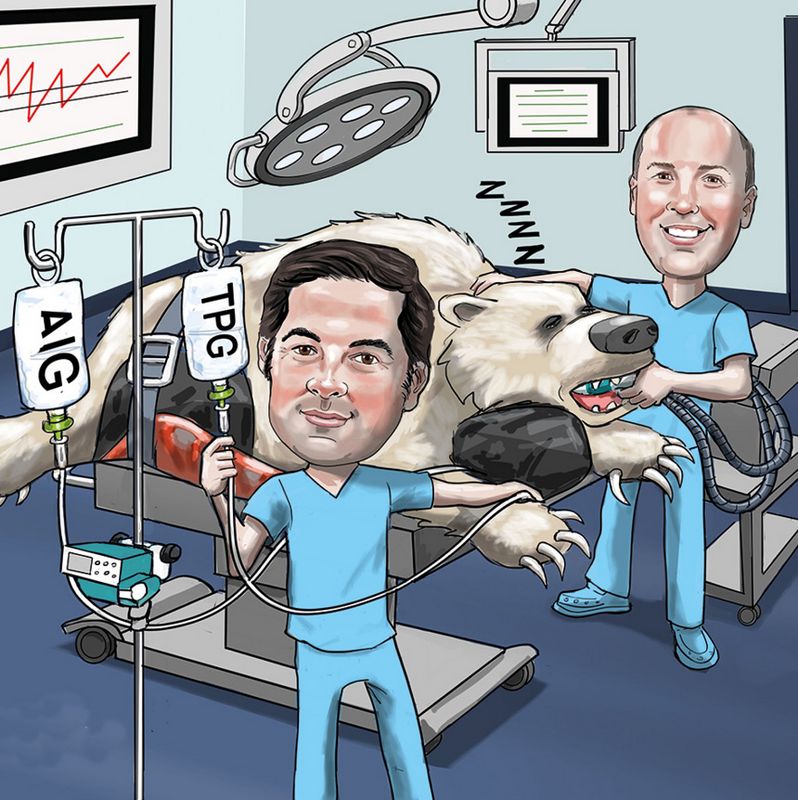Taming the bear
For positioning itself better than peers to withstand the collapse in US ECM volumes and playing off its strengths in healthcare, energy and FIG to lead many of the year’s biggest offerings, JP Morgan is IFR’s North America Equity House of the Year.
![]()
JP Morgan led the field in a brutal year for ECM in North America, executing some of the largest transactions and employing myriad strategies to deliver positive client outcomes.
The bank advised private equity firm TPG to go public in January, fortuitously pricing the offering ahead of a sharp rise in interest rates. In September, the bank headed the syndicate behind the IPO of AIG life insurance arm Corebridge Financial, a rare company that stood to benefit from higher rates.
The US Federal Reserve hiked benchmark lending rates to 4.25%–4.5% from near zero after first tightening in March. Growth stocks plunged 33% in the first bear market since the global financial crisis. Equity issuance fell 80% to US$56bn, including a collapse in IPOs that saw just 19 companies raise US$7.1bn.
“A big reason why we have been able to be resilient in a low-volume year is the breadth of our platform across sectors,” said Lorenzo Soler, JP Morgan’s head of Americas equity syndicate. “We are not just focused on technology or healthcare.”
JP Morgan led 79 equity deals, more than any other bank, earning bookrunner credit of US$9bn, giving it a leading 16% share in the combined US equity league table. REITs, FIG and biotech figured prominently in the sector mix, as did energy, including both conventional and alternative energy producers.
In a lean year for IPOs, JP Morgan led the two largest US IPOs of the year.
JP Morgan earned outsized fees on TPG’s US$1.1bn IPO of 37.3m shares at US$29.50. The offering was 10 times subscribed and anchored by institutions that had also invested in the firm’s private equity funds.
TPG closed its Nasdaq debut at US$34 and traded solidly above offer until April, after the Fed began tightening.
Corebridge’s US$1.7bn NYSE float, the biggest US IPO of the year, entailed extensive pre-marketing tightly focused on a narrow base of institutional anchors.
JP Morgan acted as global coordinator on the all-secondary sale of 80m Corebridge shares at US$21. The terms valued the insurer at just 0.65 times adjusted book value.
“Targeted yet thorough testing-the-waters was key in optimising demand and valuation,” Soler said.
“Ensuring we had the right long-term investors anchoring our IPOs led to highly successful outcomes for our issuer clients both at the time of the IPO and just as importantly, in the months that followed.”
Laying the groundwork
JP Morgan flexed its balance-sheet prowess in June as a bookrunner on the US$2.1bn marketed follow-on for American Tower, a primary offering used to partially fund a US$10.4bn acquisition. In addition, the telecoms tower owner secured US$2.5bn from a PIPE private placement.
JP Morgan advised on the M&A, provided bridge funding, executed the equity takeout, and put in place subsidiary loans to support the acquisition.
Post Holdings, the cereal maker and serial issuer, turned to JP Morgan to lead equity transactions on consecutive nights, securing US$347.8m through a secondary sale of former subsidiary BellRing Brands on a Monday and US$575m of new money from a CB the next day.
The bank executed the secondary sell-down as a debt-for-equity exchange and as a block, limiting tax obligations and market risk. It confidentially marketed the CB to lock down terms and limit risk.
Biotechs found it difficult to raise money, forcing them to employ a panoply of approaches.
Earlier-stage biotechs Verve Therapeutics (US$225m) and Revolution Medicines (US$230m) relied on JP Morgan to execute wall-crossed follow-on offerings. The bank also employed registered direct offerings and royalty sales agreements for biotechs.
“Innovation is being driven in science and patient care in exciting and novel ways,” said Paul Wright, vice-chairman of equity syndicate. “However, that innovation is also capital intensive.
In August, Karuna Therapeutics built upon momentum of Phase III trial results for its schizophrenia drug by opting for a public transaction, raising US$862.5m, significantly more than the US$600m sum targeted.
To see the digital version of this report, please click here
To purchase printed copies or a PDF of this report, please email leonie.welss@lseg.com




